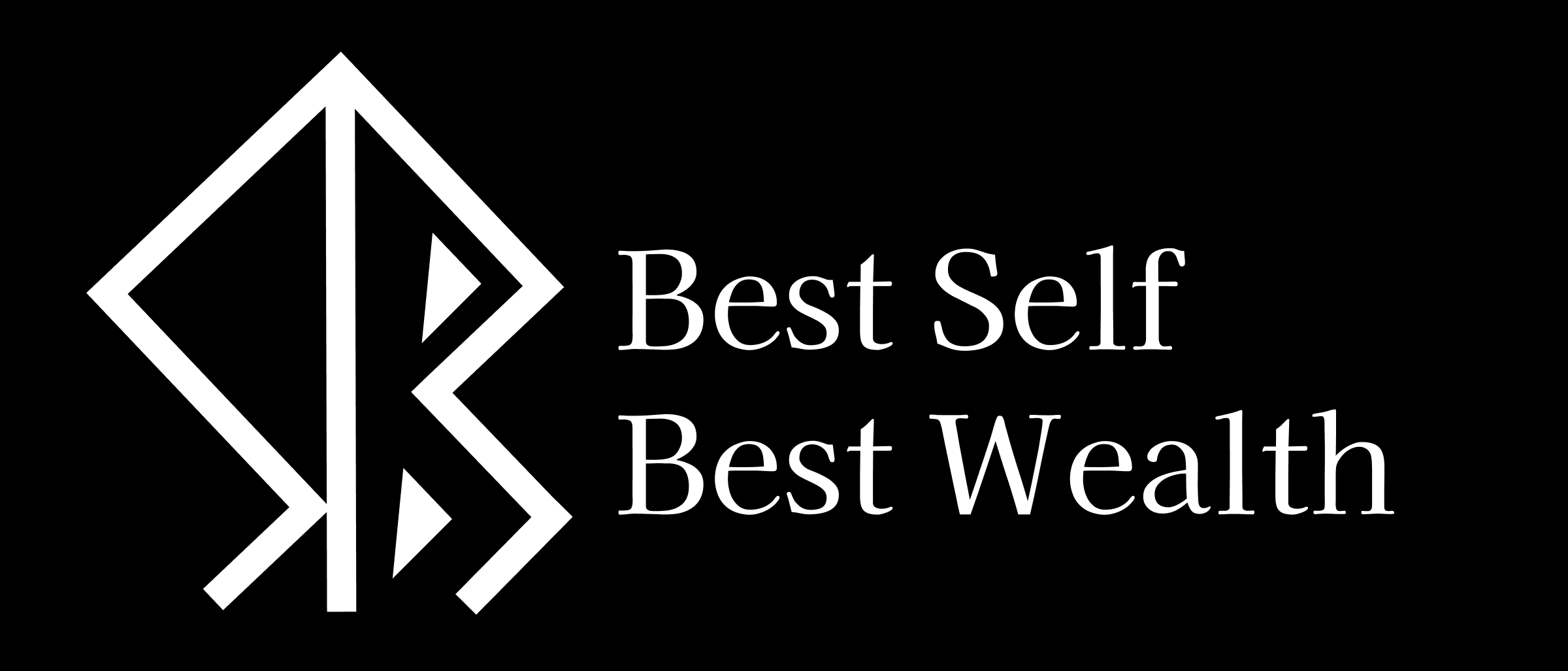Embarking on the journey to self realization is one of the most transformative experiences you can have in life. It is a process of peeling back the layers of external expectations and societal conditioning to uncover your true essence. In this article, we explore the multifaceted nature of self realization, discuss practical strategies for embracing your authentic self, and provide actionable steps to help you navigate your inner world with clarity, mindfulness, and purpose.
Self realization isn’t just a buzzword—it’s a lifelong process of discovering who you truly are. Whether you are beginning your exploration or you have been on the path for years, this guide provides insights, strategies, and perspectives to help you enhance your self-awareness and ultimately lead a more fulfilling and authentic life.
Understanding Self Realization

The concept of self realization can be both profound and elusive. To truly understand its transformative power, we first need to define what self realization means, explore its historical context, and examine how it has been understood across various philosophical and spiritual traditions.
Defining Self Realization
At its core, self realization is the process of becoming fully aware of your inner self—your values, beliefs, emotions, and true desires—beyond the roles and masks that society often imposes. It involves:
- Self-Awareness: Recognizing your thoughts, feelings, and behaviors as they are.
- Authenticity: Embracing your true self rather than conforming to external expectations.
- Inner Wisdom: Tapping into the deep well of insight and intuition that lies within you.
Self realization is not about achieving perfection; rather, it’s about understanding and accepting yourself fully, including both your strengths and vulnerabilities. It is a journey of growth where you learn to trust your inner voice, set healthy boundaries, and make decisions that align with your true essence.
Historical and Philosophical Perspectives
The idea of self realization is deeply rooted in various historical, philosophical, and spiritual traditions. In ancient Eastern philosophies such as Hinduism and Buddhism, self realization is often equated with spiritual awakening or enlightenment—a state where the individual self merges with a universal consciousness. For instance:
- In Hinduism: The concept of Atman (the true self) and its unity with Brahman (the ultimate reality) is a cornerstone of spiritual philosophy. Texts like the Upanishads explore the idea that self realization is the path to liberating oneself from the cycle of birth and rebirth.
- In Buddhism: Enlightenment or nirvana is achieved when one sees through the illusions of the ego and realizes the interconnected nature of all life. The practice of mindfulness and meditation plays a central role in this journey.
Western philosophies have also explored self realization, albeit in different terms. Existential thinkers like Jean-Paul Sartre and Carl Jung emphasized the importance of self-awareness, personal responsibility, and the integration of the unconscious mind. Jung’s concept of individuation, for example, is all about integrating various aspects of the self to achieve a balanced and authentic existence.
Across these diverse traditions, the common thread is the recognition that self realization is not merely a destination—it’s an ongoing journey that requires commitment, reflection, and a willingness to challenge long-held beliefs.
The Path to Embracing Your Authentic Self

Embarking on the journey toward self realization involves developing greater self awareness and actively engaging in practices that foster inner growth. In this section, we explore how self-awareness, mindfulness, and self-reflection can serve as powerful tools to help you embrace your authentic self.
The Role of Self-Awareness and Mindfulness
Self-awareness is the foundation of self realization. It involves an honest and open look at your inner world—the thoughts, emotions, and impulses that guide your behavior. Mindfulness, a practice that originated in ancient meditation techniques, is a powerful way to cultivate this awareness. By practicing mindfulness, you learn to observe your thoughts and emotions without judgment, which enables you to respond to situations with greater clarity and less reactivity.
Here are some ways mindfulness can enhance your journey to self realization:
- Living in the Present: Mindfulness teaches you to focus on the here and now, reducing anxiety about the future and regrets about the past.
- Emotional Regulation: By recognizing your feelings as they arise, you can learn to manage them more effectively, preventing negative emotions from overwhelming you.
- Increased Clarity: Regular mindfulness practice helps you see situations more clearly, enabling you to make decisions that are aligned with your true values and desires.
Integrating mindfulness into your daily routine might involve practices such as meditation, mindful breathing exercises, or simply taking a few moments throughout the day to check in with yourself. These practices not only improve your mental well-being but also pave the way for deeper self exploration and understanding.
Cultivating Authenticity Through Self-Reflection
Self-reflection is a critical aspect of self realization. It allows you to step back from the hustle and bustle of daily life and examine your inner world with compassion and honesty. Through self-reflection, you can identify recurring patterns in your behavior, understand the roots of your emotions, and recognize areas where you might be living out of alignment with your authentic self.
Consider incorporating the following self-reflective practices into your routine:
- Journaling: Writing down your thoughts and feelings can help you uncover patterns and gain insights into your inner workings. It’s a private space where you can explore your emotions, set intentions, and track your personal growth over time.
- Meditative Inquiry: During meditation, ask yourself reflective questions like, “What truly matters to me?” or “Am I living in alignment with my values?” These questions can guide you toward a deeper understanding of your authentic self.
- Mindful Observation: Pay attention to your reactions in different situations. Notice what triggers strong emotions and consider why certain events impact you so deeply. This can reveal hidden aspects of your inner life that require attention and care.
By regularly engaging in self-reflection, you begin to dismantle the barriers that separate you from your true self. Over time, you’ll find that embracing your authenticity becomes a natural part of your everyday life.
Practical Steps on the Journey to Self Realization

While the journey to self realization is deeply personal and unique to each individual, there are several practical strategies you can implement to support your growth. In this section, we outline actionable steps and practices designed to foster self awareness, cultivate mindfulness, and ultimately help you embrace your authentic self.
Setting Intentions and Goals
A crucial first step in your journey is to set clear intentions and goals. These serve as a roadmap, guiding you through the process of self-exploration and personal growth. Here’s how to get started:
- Define Your Purpose: Begin by asking yourself what you truly desire from life. What are your passions, and what values are non-negotiable for you? Understanding your core values will help you set intentions that are in line with your authentic self.
- Set Achievable Goals: Once you have a clear understanding of your purpose, break it down into smaller, manageable goals. For instance, if self realization is your aim, your goals might include practicing daily mindfulness, scheduling regular self-reflection sessions, or exploring new creative outlets.
- Write It Down: Document your intentions and goals in a journal. This not only reinforces your commitment but also provides a tangible reference to track your progress over time.
- Review and Adjust: Self realization is a continuous journey. Consistently evaluate your goals and refine them as necessary. As you grow and evolve, your aspirations will too.
By setting intentional goals, you create a structured path that helps you focus on what truly matters, making the process of self realization more tangible and achievable.
Meditation and Mindfulness Practices
Meditation is one of the most effective tools for achieving self realization. It creates a quiet space within you where the noise of the external world fades away, allowing your inner voice to emerge. Here are a few meditation and mindfulness techniques to try:
- Basic Mindfulness Meditation: Sit comfortably, close your eyes, and focus on your breath. Pay attention to the feeling of air flowing in and out of your body. If your mind wanders, gently bring your focus back to your breath. Start with just a few minutes each day and gradually increase the duration.
- Guided Meditation: For beginners, guided meditations can be especially helpful. Many apps and online resources offer guided sessions that can help you navigate the early stages of meditation, making the practice more accessible and less daunting.
- Loving-Kindness Meditation: This practice involves directing positive thoughts and compassion toward yourself and others. It can help you overcome negative self-talk and cultivate a deeper sense of self-compassion, which is essential for embracing your authentic self.
- Body Scan Meditation: This practice involves bringing awareness to each part of your body, from head to toe, and observing any tension or discomfort. It is a powerful way to connect with your physical self and to understand how your body responds to emotional states.
Regular meditation not only enhances self awareness but also builds mental resilience, reduces stress, and fosters an overall sense of well-being. As you deepen your practice, you’ll notice that moments of stillness become gateways to deeper insights and personal breakthroughs.
Journaling and Reflection Techniques
Journaling is a timeless practice that serves as a window into your inner world. It allows you to document your thoughts, reflect on your experiences, and uncover patterns that might be holding you back from true self realization. Here are some journaling techniques to consider:
- Free Writing: Set a timer for 10-15 minutes and write without pause, letting your thoughts flow freely without concern for grammar or structure Allow your thoughts to flow freely. This unstructured approach can reveal hidden feelings and insights that structured writing might overlook.
- Gratitude Journaling: Each day, list three things you appreciate or feel thankful for. Cultivating gratitude helps shift your focus from what is lacking in your life to the abundance that is already present, fostering a more positive mindset.
- Reflective Prompts: Use questions such as “What did I learn about myself today?” or “How did I respond to challenges, and what can I improve?” as prompts to guide your reflections. These prompts encourage deeper introspection and can help you track your personal growth over time.
- Thematic Journaling: Focus on specific themes such as fear, joy, or personal strengths. Exploring these themes in detail can help you understand the recurring patterns in your behavior and emotions.
By setting aside time each day or week for journaling, you build a repository of insights that can serve as a roadmap for your ongoing journey toward self realization. Over time, your journal becomes a mirror reflecting your growth, struggles, and breakthroughs, offering invaluable guidance as you continue to evolve.
Overcoming Common Obstacles on the Path

While the journey to self realization is incredibly rewarding, it is not without its challenges. Many of us encounter obstacles that can impede our progress—self-doubt, fear, and the weight of societal expectations are among the most common. Understanding these obstacles and learning how to overcome them is essential for staying true to your path.
Addressing Self-Doubt and Fear
Self-doubt is a natural part of the human experience. It often arises when you step outside your comfort zone and confront the unknown aspects of your inner self. However, if left unchecked, self-doubt and fear can hinder your progress on the path to self realization. Here are some strategies to address these challenges:
- Acknowledge Your Fears: The first step in overcoming fear is to recognize and accept its presence. Write down what you are afraid of—be it failure, rejection, or the possibility of change. By naming your fears, you diminish their power over you.
- Practice Self-Compassion: Treat yourself with kindness and understanding. Recognize that everyone experiences self-doubt and that it is a natural part of growth. Replace self-critical thoughts with affirmations that remind you of your inherent worth and capabilities.
- Visualize Success: Use visualization techniques to imagine yourself overcoming challenges and achieving self realization. Visualizing a positive outcome can build confidence and reduce anxiety.
- Seek Support: Sometimes, talking to a trusted friend, mentor, or therapist can provide new perspectives and encouragement. Sharing your struggles helps normalize them and can provide valuable insights on how to move forward.
Remember that self-doubt and fear are not permanent states. With consistent practice, you can learn to manage these emotions and use them as stepping stones rather than stumbling blocks.
Breaking Free from Societal Expectations
Society often imposes expectations and norms that can conflict with your true self. These external pressures might push you to pursue goals that are not aligned with your inner values or cause you to adopt behaviors that mask your authentic identity. To break free from these constraints:
- Identify External Influences: Take time to reflect on the societal expectations that have influenced your life choices. Are these expectations truly your own, or have they been imposed by family, culture, or media?
- Define Your Own Success: Redefine what success means to you. Instead of measuring your worth by conventional standards, create your own metrics that reflect your values, passions, and personal vision.
- Establish Healthy Boundaries: Learn to say no to expectations that do not serve your well-being. Establishing boundaries is a critical part of preserving your energy and staying true to your path.
- Embrace Individuality: Celebrate your uniqueness. Understand that your authentic self is a gift that can contribute a distinct perspective to the world. Embracing your individuality can empower you to resist conformity and live a life that is both meaningful and true to who you are.
By challenging societal expectations and asserting your individuality, you free yourself to explore the depths of your inner world and embrace self realization on your own terms.
Integrating Self Realization into Daily Life

Self realization is not a destination that you reach once and for all; it’s a continuous, dynamic process that should permeate every aspect of your life. The insights and practices you cultivate along the way are most powerful when they become integrated into your daily routines, relationships, and overall lifestyle.
Building Resilient Habits and Routines
Developing habits that support self realization is essential for sustaining long-term growth. Here are some ways to incorporate self-aware practices into your everyday life:
- Morning Rituals: Start your day with a ritual that centers you-be it meditation, journaling, or a simple mindfulness exercise. A mindful morning routine creates a foundation for a positive and productive day.
- Regular Check-Ins: Schedule moments throughout your day to pause and reflect. These brief interludes can be as simple as a few deep breaths or a quick mindfulness exercise that helps you stay connected with your inner self.
- Digital Detox: Limit exposure to social media and digital distractions that can disconnect you from your true feelings and thoughts. Allocate specific times for technology use and create spaces in your day where you can engage in quiet, reflective activities.
- Physical Movement: Exercise and movement not only benefit your physical health but also support mental clarity. Whether it’s yoga, walking, or dancing, find a form of movement that helps you release tension and reconnect with your body.
Developing a consistent routine that aligns with your values can foster an environment where self realization is not just an occasional practice but a core part of your lifestyle.
Embracing Continuous Learning and Growth
Self realization is an ever-evolving process. Even as you make significant strides in understanding your true self, there is always room for further growth and learning. Consider these approaches to maintain a trajectory of continuous self development:
- Read and Research: Immerse yourself in literature that explores topics of self awareness, mindfulness, and personal growth. Books, articles, and podcasts can offer fresh perspectives and deepen your understanding of the journey.
- Workshops and Seminars: Engage in workshops, retreats, or courses that focus on spiritual growth, mindfulness, or psychological well-being. These experiences can provide both inspiration and practical tools for further exploration.
- Mentorship and Community: Surround yourself with like-minded individuals who support your quest for self realization. Whether through online communities, local groups, or one-on-one mentorship, sharing experiences with others can enrich your journey and offer new insights.
- Reflect on Your Progress: Regularly revisit your journal and personal reflections to gauge your progress. Celebrate your achievements, learn from your challenges, and adjust your goals as necessary. This ongoing process of self evaluation is key to sustained growth.
By committing to lifelong learning and self improvement, you acknowledge that self realization is a journey without a final destination—only continuous evolution.
Conclusion: Celebrating the Journey to Self Realization
The path to self realization is as unique as the individual who walks it. It is a journey filled with introspection, mindfulness, vulnerability, and ultimately, the courage to embrace your authentic self. Along the way, you may encounter obstacles such as self-doubt and societal pressures, but every challenge offers an opportunity for growth and deeper understanding.
By integrating practices such as mindfulness meditation, journaling, and intentional living into your daily routine, you create a life that is aligned with your core values and true desires. Each step you take, no matter how small, is a testament to your commitment to discovering and honoring your inner self.
Remember that self realization is not about reaching a state of perfection; it is about accepting who you are in all your complexity and living a life that reflects your deepest truths. It’s a continuous process of learning, unlearning, and evolving—a journey where every moment offers the chance to reconnect with the essence of who you are.
As you continue on this path, celebrate the progress you’ve made and remain open to the endless possibilities that lie ahead. Embrace the power of self awareness, and let your authentic self shine as a beacon of hope and inspiration—for yourself and for others who are also seeking a more meaningful, purpose-driven life.
May your journey to self realization be filled with insight, compassion, and a deep sense of inner peace. The transformative power of understanding and embracing your true self can lead to a life that is not only rich in meaning but also a profound expression of who you are meant to be.
In summary, the journey to self realization is a holistic process that touches every facet of your existence. From understanding the philosophical foundations of self realization and engaging in mindful practices, to overcoming the inevitable obstacles and integrating your insights into daily habits, every step on this path brings you closer to your authentic self. Continue exploring, remain curious, and let your inner light guide you toward a future where self realization is not just an aspiration, but a lived reality.
By taking deliberate actions today, you empower yourself to embark on this transformative journey—one that will continuously unveil the truth of who you are, beyond the confines of external expectations. Embrace your authentic self with open arms, and let the journey to self realization redefine your life in ways that are both unexpected and profoundly liberating.
Whether you are just beginning your journey or are well on your way, remember that every step you take is valuable. Your commitment to self realization is an investment in a richer, more authentic life. May you find joy in the process, strength in your vulnerability, and endless inspiration in the ever-unfolding story of your true self.
Thank you for taking the time to explore this guide on the journey to self realization. May it serve as a helpful companion on your path to embracing the authentic self that lies within you, guiding you toward a life of clarity, balance, and deep fulfillment.
Embrace your journey, celebrate your growth, and never stop exploring the infinite depths of your true being.
Created by John – 2025-02-20





